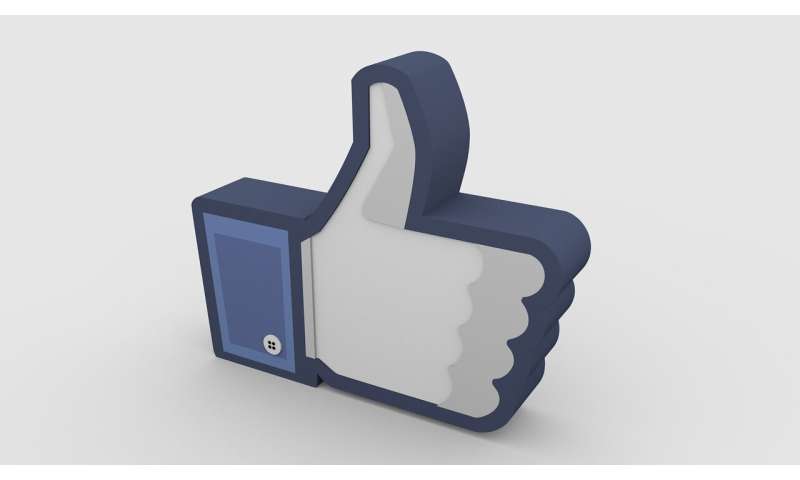
Simply not getting enough validation on social media can increase depression and anxiety, especially in the most vulnerable populations for whom these platforms may contribute to a cycle of rejection.
In a new paper published in Child Development, a large, multi-institution team led by researchers at The University of Texas at Austin employed an experimental social media task over three studies to explore the psychological effects of receiving insufficient positive feedback online.
Study participants helped test drive a new program that allowed them to create a profile and interact with same-age peers by viewing and “liking” one another’s profiles. Likes received were tallied, and a ranking of the various profiles displayed them in order of most to least liked. In actuality, likes were assigned by computer scripts. Participants were randomly assigned to receive either few likes or many likes relative to the other displayed profiles. In a post-task questionnaire, students in the fewer likes group reported more feelings of rejections and other negative emotions than those who received more likes.
“So much of the research on social media and mental health uses survey methods, but we know that correlation does not guarantee causation,” said David Yeager, co-author of the study and associate professor of psychology at UT Austin.
“This study is an important scientific advance because it uses an experiment, and it shows that not getting enough ‘likes’ actually causes adolescents to reduce their feelings of self-worth,” Yeager said, adding that study participants were notified after the study that the feedback they received was controlled by a computer program.
A second study using the same experimental task found that adolescents with the strongest negative reaction to receiving insufficient likes were also more likely to experience symptoms of depression and had higher sensitivity to daily stressors.
“Adolescents with less self-worth are at higher risk for depression,” said Chris Beevers, co-author of the study and professor of psychology at UT Austin who leads the Institute for Mental Health Research. “Feedback from peers is an important source of information that shapes how adolescents view themselves.”
A third study showed that students who had been victimized by their peers at school had the most negative reactions to receiving fewer likes and also had the greatest propensity to attribute this deficiency of likes to flaws in their own character. Social status comes into sharp focus during the teenage years of human development, and adolescents are acutely aware of their relative popularity even in the absence of explicitly negative feedback.
“This study helps us understand the power of peer approval and social status during adolescence,” said the study’s lead author Hae Yeon Lee, who is now a postdoctoral researcher at Stanford University.
The authors note that social media has the potential to exacerbate feelings of rejection and inadequacy in adolescents, as those lowest on the popularity hierarchy may come to social media hoping to receive the validation denied to them in their daily lives only to experience the same disappointment of not measuring up to their peers.
Source: Read Full Article
